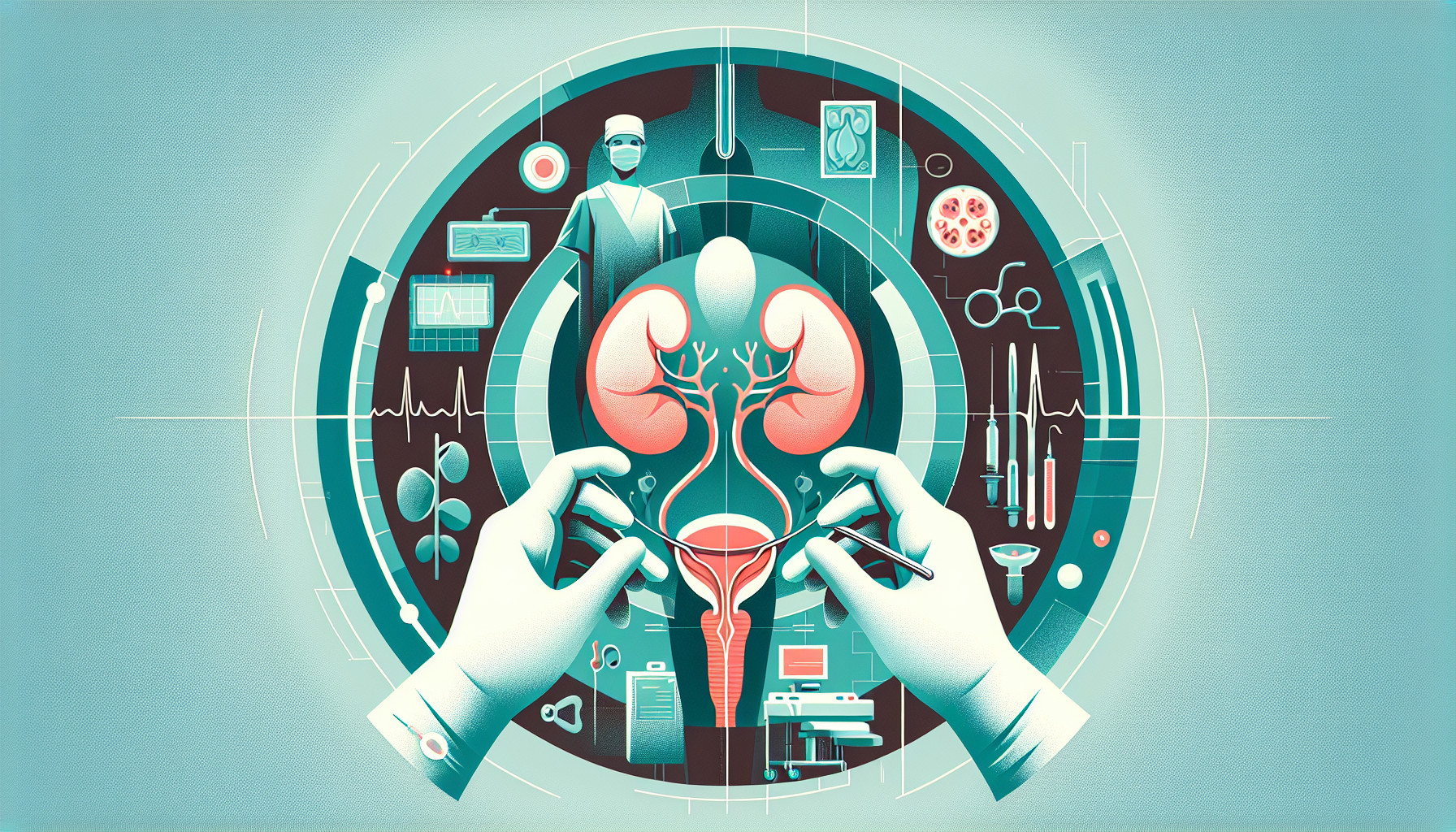Our Summary
This research paper reviews the use of robotic-assisted surgical techniques for bladder procedures in children who have incontinence due to neurogenic bladder. The main bladder procedures for this condition are: Artificial Urinary Sphincter, Bladder Neck Sling, Bladder Neck Closure, and Bladder Neck Reconstruction. The success rate of these procedures varies from 60 to 100%, and there is no agreement among experts on which procedure is the best.
The research found that while robotic-assisted surgeries take longer, especially for surgeons early in their experience with the technique, they have the same success rate as traditional surgeries. Additionally, robotic-assisted surgeries may offer benefits such as less blood loss during surgery, better cosmetic results, and a decrease in the formation of abdominal adhesions.
The conclusion is that robotic-assisted bladder procedures are safe, they follow the same steps as traditional surgery, and have similar success rates. These robotic techniques can be adapted for various bladder procedures and can be safely used in selected patients who have previously undergone traditional abdominal surgery.
FAQs
- What are the main bladder procedures for children with incontinence due to neurogenic bladder?
- What are the potential benefits of robotic-assisted surgeries for bladder procedures?
- Can robotic-assisted bladder procedures be used on patients who have previously undergone traditional abdominal surgery?
Doctor’s Tip
One helpful tip a doctor might tell a patient about bladder surgery is to follow all post-operative instructions carefully, including taking prescribed medications, avoiding strenuous activities, and attending follow-up appointments. It is important to communicate any concerns or changes in symptoms to your healthcare provider promptly. Proper post-operative care can help ensure a successful recovery and optimal outcomes from bladder surgery.
Suitable For
Patients who are typically recommended bladder surgery are those who have conditions such as neurogenic bladder, urinary incontinence, bladder outlet obstruction, bladder cancer, and bladder stones. These patients may have symptoms such as frequent urination, urgency, painful urination, blood in the urine, and difficulty emptying the bladder.
In children with neurogenic bladder, bladder surgery may be recommended if other treatments such as medication, catheterization, and physical therapy have not been successful in managing their symptoms. Bladder surgery may be necessary to improve bladder function, prevent urinary tract infections, and improve quality of life.
Overall, patients who are recommended bladder surgery should have exhausted other treatment options and have symptoms that significantly impact their quality of life. It is important for patients to discuss the risks and benefits of bladder surgery with their healthcare provider to determine if it is the best treatment option for their specific condition.
Timeline
Before bladder surgery, a patient typically undergoes a series of tests and consultations with their healthcare provider to determine the best course of treatment. This may include imaging tests, urine tests, and discussions about the risks and benefits of surgery.
After bladder surgery, the patient will likely experience some pain and discomfort, which can be managed with pain medication. They may also have a catheter in place to help drain urine from the bladder during the healing process. The patient will need to follow post-operative instructions from their healthcare provider, which may include restrictions on physical activity and dietary changes.
In the weeks and months following surgery, the patient will have follow-up appointments with their healthcare provider to monitor their progress and address any complications that may arise. With proper care and adherence to post-operative instructions, most patients can expect to see improvements in their bladder function and quality of life after surgery.
What to Ask Your Doctor
Some questions a patient should ask their doctor about bladder surgery include:
- What are the different types of bladder surgeries available for my condition?
- What are the risks and benefits associated with each type of bladder surgery?
- How successful is robotic-assisted surgery compared to traditional surgery for bladder procedures?
- How experienced are you in performing robotic-assisted bladder surgeries?
- What is the recovery process like after robotic-assisted bladder surgery?
- Are there any potential complications or side effects I should be aware of?
- How long will I need to stay in the hospital after the surgery?
- Will I need to undergo any additional treatments or therapies following the surgery?
- What is the long-term outlook for my condition after undergoing bladder surgery?
- Are there any lifestyle changes or precautions I should take after the surgery to optimize my recovery and outcome?
Reference
Authors: Gargollo PC, White LA. Journal: World J Urol. 2020 Aug;38(8):1855-1864. doi: 10.1007/s00345-019-02912-6. Epub 2019 Aug 30. PMID: 31471741
